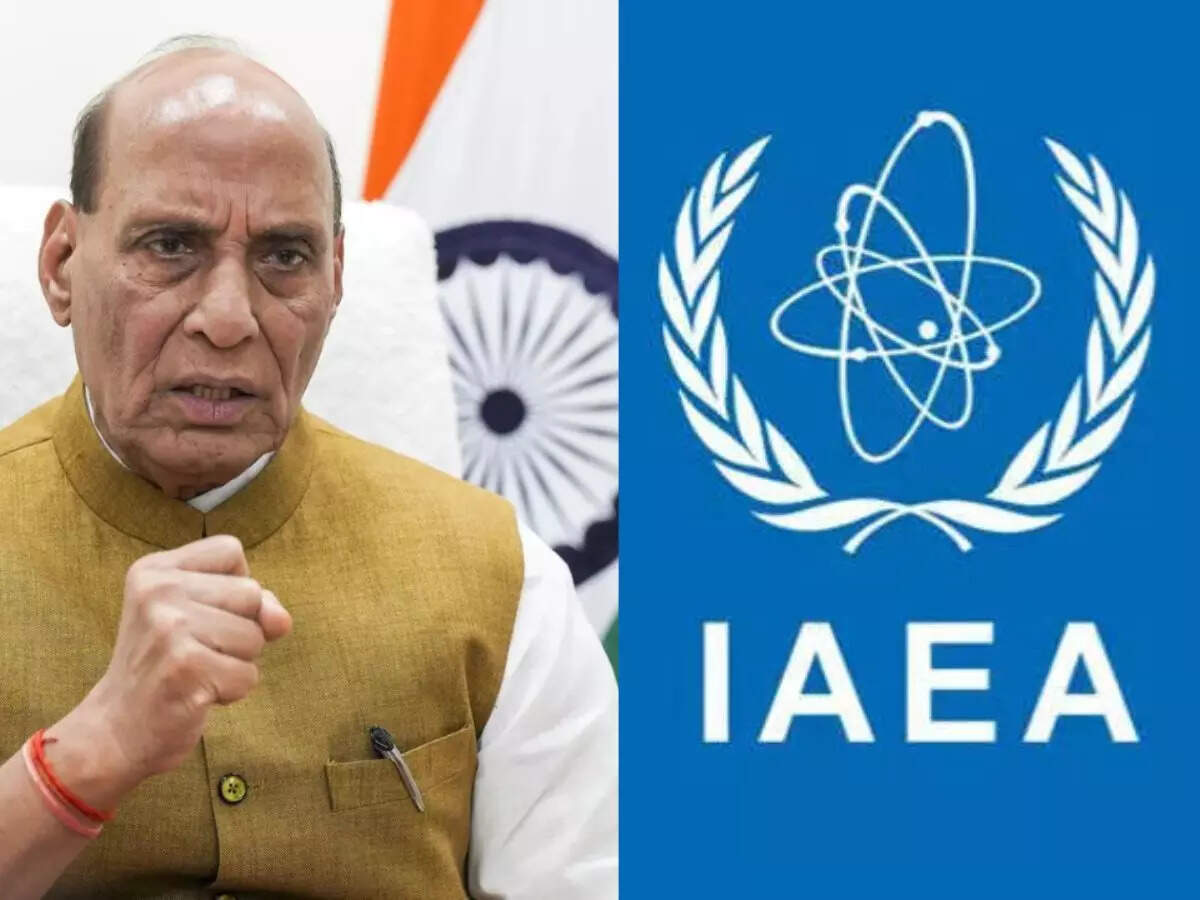 Image Source: The Economic Times
Image Source: The Economic Times
India has sharply increased its nuclear security rhetoric in South Asia, with Defence Minister Rajnath Singh asking Pakistan's nuclear weapons to come under the oversight of the International Atomic Energy Agency (IAEA). Singh's comments, made in Srinagar on his first visit to Jammu and Kashmir since last week's military operation "Sindoor," follow closely on the heels of India and Pakistan agreeing to a ceasefire after their most intense military clash for almost three decades.
Key Highlights
Rajnath Singh raised questions over the safety of Pakistan's nuclear weapons, terming the neighboring nation an "irresponsible and rogue nation." He claimed that constant and irresponsible nuclear threats by Islamabad call for international scrutiny and global monitoring.
The demand for IAEA monitoring comes after a deadly terror strike in Pahalgam, Kashmir, on April 22 killed 26. India retaliated with targeted strikes on so-called terrorist infrastructure within Pakistan, sparking several days of cross-border missile and drone attacks before a ceasefire was agreed.
Singh emphasized that India would not be deterred by what he described as Pakistan’s “nuclear blackmail,” asserting that India’s military response had demonstrated a new resolve against terrorism.
The Defence Minister’s comments echoed Prime Minister Narendra Modi’s recent declaration that nuclear threats would no longer prevent India from taking decisive action against terrorism.
In turn, Pakistan's Foreign Ministry criticized Singh's comments, alleging India's insecurity and frustration with Pakistan's nuclear deterrence. Islamabad also retorted with raising issues about nuclear material theft incidents in India and criticizing New Delhi for understanding the role of the IAEA.
The Vienna-based IAEA is a United Nations organization that has the mandate of ensuring that nuclear programs globally are utilized solely for peaceful purposes. Although it keeps a watch on some Indian civilian nuclear facilities, India and Pakistan have complete control over their respective military nuclear weapons.
Singh's remarks represent a dramatic intensification of India's diplomatic offensive to corner Pakistan internationally over nuclear security, particularly in the wake of Islamabad's opaque nuclear policy and record of proliferation issues.
The latest crisis has again exposed the volatility of the South Asian region, where two nuclear rivals are trapped in a spiral of provocation and retorsion, rendering it one of the world's most hazardous nuclear flash points.
Sources: Reuters, Business Standard, Times of India, The Indian Express, Economic Times, Al Jazeera, The Print
Advertisement
Advertisement





